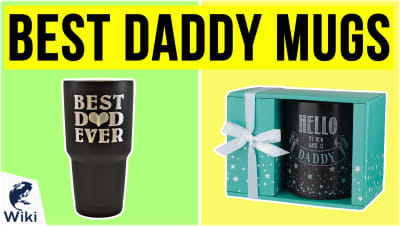What is a Meme?
Whether you just joined Facebook last year or you've got a decade and a half of Photoshop Phridays under your belt, there's a good chance you occasionally wonder just what a meme is. The umbrella is large. It covers everything from the most insular of in-jokes to election-season billboards paid for by Political Action Committees. We took a look at the origins and history of these bizarre artifacts of Internet culture. This video was made with Ezvid Wikimaker.
Pronouncing Meme
People regularly mispronounce this word. Most commonly, they either say "may-may" or "me-me." The actual pronunciation is closer to "mee-m." It rhymes with "team." Knowing this will keep you from being a laughingstock in certain circles. And that's not just because of the Internet: that practice dates back to Biblical times. The word "shibboleth" comes from a story in the Book of Judges. There, one group used it to identify members of another group. Back then, it was life or death.
How Do I Make Memes?
There are almost as many ways to make memes as there are varieties. Before you decide your tool, you should consider what kind you want to make, and how you want to share it.
- For image macros, the Meme Generator from ImgFlip is a powerful and sensible tool.
- Imgur has a slightly more complicated interface, but it is incredibly easy to share.
- If you want complete control, follow these steps to make it in Photoshop.
- For animated GIFs, Giphy's GIF Maker is robust and intuitive.
- Video memes need editing software or an app. Luckily, there are free options available.
Where Should I Post My Meme?
There's no strict formula to going viral. Many of the best memes will only be seen by a small group of people. But there are some steps you can take to make sure you find the right community for your creation. The basic division is between social media like Twitter, Facebook, Pinterest and Tumblr or boards (of the message or image variety) like Reddit and 4chan
| Features | Social Media | Boards |
|---|---|---|
| Built-in Audience | ||
| Taste Makers | ||
| Shared Cultural Touchstones | ||
| Easy to Credit |
Where Can I Learn About Memes?
Whether it's Pepe the Frog, the Ermagehrd girl, the Dramatic Chipmunk, or Leekspin, everyone has a first time seeing each meme. Luckily, there are plenty of places on the web to check out the flavor of the month.
- Know Your Meme is basically the Wikipedia of memes.
- If you prefer video, Behind the Meme is a Youtube channel that chronicles them well.
- Urban Dictionary isn't always the best source, but it can come through in a pinch.
- When all else fails, Google is always an option.
The Science of Memes
Conclusion
Knowing about memes is a form of social capital. You can delight your friends, or you can always be one step ahead of them. Plus, it will make you better at making your own. That might be through a subtle reference to the Hamster Dance. Or it might be because you'll be the first to know when the new hotness is old news. And when it comes right down to it, memes are just shared knowledge. So what you're doing right now? That's a meme.
In Depth
Memes are the collective culture of the internet. That might seem a bit lofty. But these bits of virally transmitted knowledge are important. Even if most of them are just some goofy text over a silly image. They have a real impact.
The term was originally coined by the evolutionary biologist Richard Dawkins. He described it as the cultural equivalent of a gene. It was meant to adapt Charles Darwin's theory to certain aspects of human life. The idea was that people replicate what they have heard and seen. But they do so imperfectly. Those changes are subject to something like natural selection. The ultimate twist came when Dawkins tweeted about his little jar of honey, and became a meme himself.
The earliest examples of internet memes can be traced to the turn of the century. The first to take the web by storm was the Dancing Baby. It was so popular it found its way onto the hit TV show Ally McBeal. But animated gifs are only one way that people think of memes. The most iconic type is probably the image macro. In these, an image is overlaid with text. The first to gain broad popularity was All Your Base Are Belong To Us.
But animated gifs are only one way that people think of memes.
In the nearly two decades since, the format has exploded. We've seen the Flying Spaghetti Monster critique religion, and Feminist Ryan Gosling opine on relationships. There have been a plenitude of Lolcats and Success Kids. Websites like 4chan and Reddit have always been at the forefront of this cultural revolution. But more and more, it is succumbing to social media. Nowadays, you are as likely to find a bespoke meme from weird Facebook or Black Twitter as anywhere else.
Money has followed the widespread acceptance. I Can Haz Cheezburger has been valued at millions of dollars. Individuals on Instagram and other sites charge tens of thousands for a single post. Brands have even got into it as well. Sonic the Hedgehog has never been edgier than he is on Twitter. The same goes for Arby's, the fast food sandwich shop. These days, they aren't just a part of the culture. They're a legitimate potential career path.
The widespread appeal has also given rise to other uses. There is even a kind of meme avant-garde. As jokes, memes almost always reinforce a group identity. All Your Base Are Belong To Us isn't just funny because of the odd grammar. It is a reference to an old video game, and the translation issues those often faced. Nowadays, there are memes that only reference other memes. Dat Boi is the prime example. The frog riding a unicycle doesn't mean anything other than that it's prime meme materials.
There is even a kind of meme avant-garde.
Their long march toward politics culminated in 2016 with a speech by Hillary Clinton. She detailed Republican nominee Donald Trump's supporters in the alt-right, who used internet culture in explicitly political ways. But that didn't come from nowhere. 4chan, an imageboard that has been incredibly influential on internet culture, had been politicizing for years. In 2008, some users took to the streets to protest Scientology while wearing Guy Fawkes masks. Many participants would later go on to engage in the Occupy Wall Street protests.
As the sources of the memes became increasingly polarized, so did their content. Pepe the frog became a sort of mascot of the far right. The left has adopted the rose emoji and a number of variations on old antifascist slogans. And that shift has trickled up. This was also obvious in the last American presidential election. Palmer Luckey, the face behind the Oculus Rift virtual reality system, was caught promoting the merits of "meme magic" to sway the election. In some ways, this was the opposite of making political memes. It was a way of making memes political.
All of that polarization has had opposing effects, as well. There are communities dedicated to the idea of "wholesome memes." These are simple image macros and comics meant to reinforce your self worth. In some ways, they are the logical successors to things like the old motivational posters. You might have seen one of those on a coworker's cubicle. Or even in one of those vaguely conspiratorial email chains your grandparents used to pass around. The ones with fifteen different fonts, where each had a different color.
Or even in one of those vaguely conspiratorial email chains your grandparents used to pass around.
No matter how you come about them, you should always remember that memes are meant to be fun. They create a sense of community, and can impart information. If you decide to make one, try to ensure that it isn't just didactic or completely random. You want to have a point. Even if that's just to make someone laugh. But you also want to make sure it can be mutated and shared around even further. That's the essence of a meme.



















